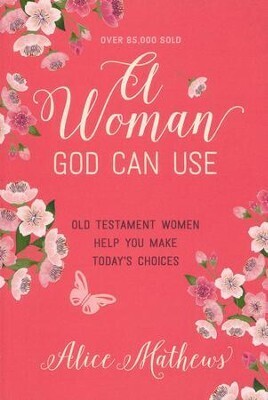Abigail: An Ezer Ranch Wife Saves Her Household From Disaster (1 Samuel 25)
Article / Produced by TOW Project
Refusing to be hampered by patriarchal strictures, Abigail defied gender roles in order to keep a workplace dispute from escalating to murder and genocide.
Here's the back-story (found in 1 Samuel 25): The rich rancher Nabal pastured sheep and cattle on unfenced lands. David, on the run from King Saul, voluntarily employed his large band of men to protect Nabal's livestock. The expected reward for this year-long service would be a large gift of food at harvest time. But Nabal scorned David's work and refused to give him anything. In response, David armed four hundred of his men and set out to annihilate Nabal's entire household. When Nabal's wife, Abigail, heard about this, she felt she had to act, even though as a woman and as Nabal’s wife in a patriarchal society, this was beyond the scope permitted her. What could she do?
Tossing patriarchal structures to the wind and risking her life in the process, Abigail loaded vast amounts of food on donkeys and set out to meet David and his band of warriors. She bowed low to the ground and presented her gifts, hoping that David would accept her apology on behalf of her husband. David was pacified by Abigail’s gifts and judicious words. He and his men accepted the gifts and returned to their mountain lair.
But on her return home Abigail still faced Nabal's wrath at her disloyalty. Nabal could have disowned her or worse, he could have her killed. But when the rancher heard of David's intention to murder him and all his household, he had a stroke, and ten days later he died.
As soon as David heard that Nabal was dead, he immediately proposed marriage to Abigail. With her five maids in tow, Abigail mounted her donkey and rode off to become David's wife. That may sound like a fairy-tale ending to Abigail's life, but David already had two other wives, and in time he would marry five more. Patriarchy in some form or another would still rule Abigail's life.
In today's world, a plucky woman like Abigail could have returned home, taken charge of the ranch, and run it effectively. We don't live in the patriarchal world of the Ancient Near East. But we still deal with patriarchal notions in the workplace, at home, and in all spheres of life. How is an ezer woman to negotiate such an environment? Like Abigail, we can make decisions about how much we're willing to accept and what we choose to change. We work to overturn patriarchy at work and in the larger society, yet know that we might not see the demise of sexism in our lifetime.






